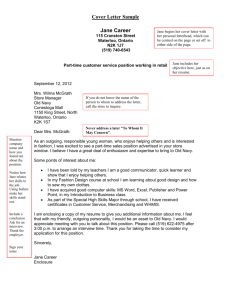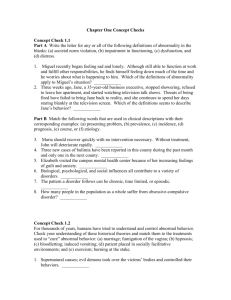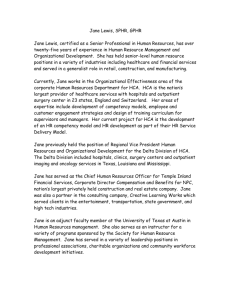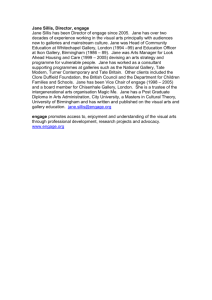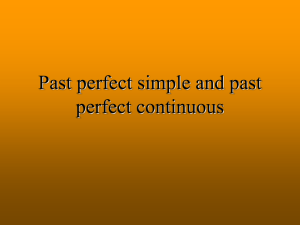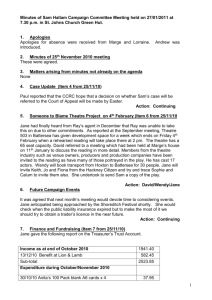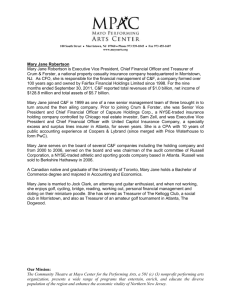Tax Diversity Interview: Jane Adam
advertisement
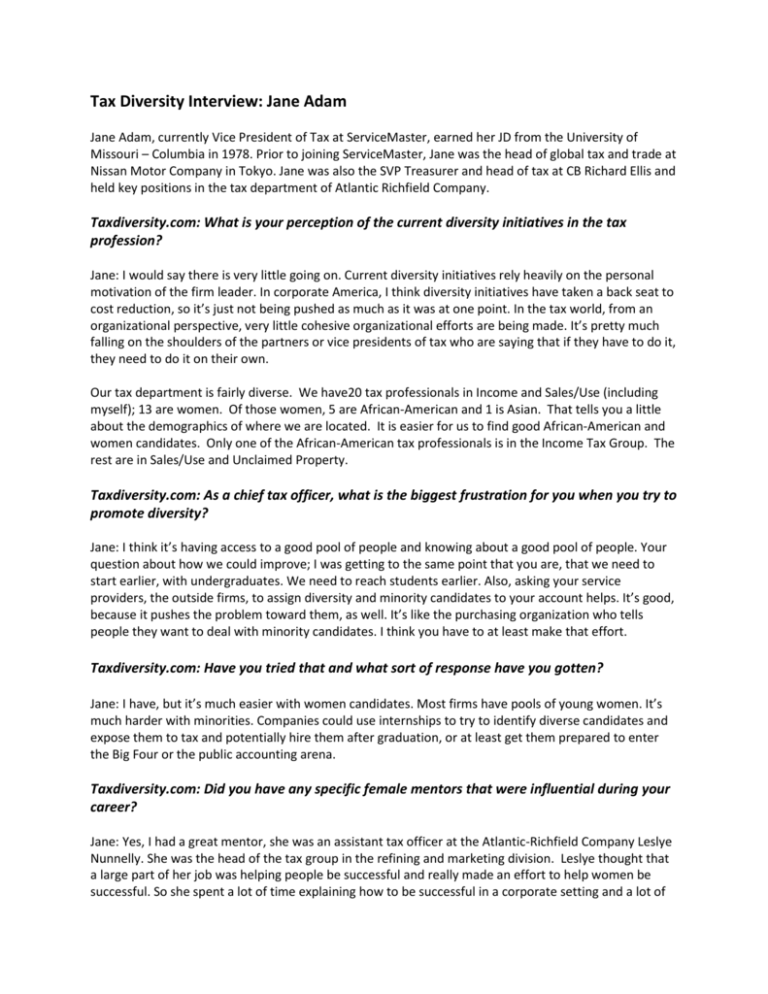
Tax Diversity Interview: Jane Adam Jane Adam, currently Vice President of Tax at ServiceMaster, earned her JD from the University of Missouri – Columbia in 1978. Prior to joining ServiceMaster, Jane was the head of global tax and trade at Nissan Motor Company in Tokyo. Jane was also the SVP Treasurer and head of tax at CB Richard Ellis and held key positions in the tax department of Atlantic Richfield Company. Taxdiversity.com: What is your perception of the current diversity initiatives in the tax profession? Jane: I would say there is very little going on. Current diversity initiatives rely heavily on the personal motivation of the firm leader. In corporate America, I think diversity initiatives have taken a back seat to cost reduction, so it’s just not being pushed as much as it was at one point. In the tax world, from an organizational perspective, very little cohesive organizational efforts are being made. It’s pretty much falling on the shoulders of the partners or vice presidents of tax who are saying that if they have to do it, they need to do it on their own. Our tax department is fairly diverse. We have20 tax professionals in Income and Sales/Use (including myself); 13 are women. Of those women, 5 are African-American and 1 is Asian. That tells you a little about the demographics of where we are located. It is easier for us to find good African-American and women candidates. Only one of the African-American tax professionals is in the Income Tax Group. The rest are in Sales/Use and Unclaimed Property. Taxdiversity.com: As a chief tax officer, what is the biggest frustration for you when you try to promote diversity? Jane: I think it’s having access to a good pool of people and knowing about a good pool of people. Your question about how we could improve; I was getting to the same point that you are, that we need to start earlier, with undergraduates. We need to reach students earlier. Also, asking your service providers, the outside firms, to assign diversity and minority candidates to your account helps. It’s good, because it pushes the problem toward them, as well. It’s like the purchasing organization who tells people they want to deal with minority candidates. I think you have to at least make that effort. Taxdiversity.com: Have you tried that and what sort of response have you gotten? Jane: I have, but it’s much easier with women candidates. Most firms have pools of young women. It’s much harder with minorities. Companies could use internships to try to identify diverse candidates and expose them to tax and potentially hire them after graduation, or at least get them prepared to enter the Big Four or the public accounting arena. Taxdiversity.com: Did you have any specific female mentors that were influential during your career? Jane: Yes, I had a great mentor, she was an assistant tax officer at the Atlantic-Richfield Company Leslye Nunnelly. She was the head of the tax group in the refining and marketing division. Leslye thought that a large part of her job was helping people be successful and really made an effort to help women be successful. So she spent a lot of time explaining how to be successful in a corporate setting and a lot of people don’t do that. They somehow think you’ll just figure it out. . Taxdiversity.com: What was the best piece of advice that you received that helped you progress to where you are today in your career? Jane: Work wisely and well with your HR department. The good ones can really help you. They can give you good personal career advice: how to deal with difficult people, how to make personnel changes or take personnel actions that need to be taken. Even the bad ones, you don’t want them for an enemy. Taxdiversity.com: So there are very effective HR groups and the ones that aren’t effective, you go out of your way to neutralize them and avoid animosity. And the really good ones you exploit for things they can absolutely offer you in helping you hire, develop, train, succession planning, all of that. Jane: Exactly. Another good piece of advice that I got was from someone who came into tax from outside of tax. He was a financial analyst. He really helped me with communication. You have to be clear, you have to be able to talk to non-tax people and you have to be concise. Always think in terms of your executive summary. What are the two or three big ideas you want people to get from what you’re trying to explain to them. TaxDiversity.com: So work closely with your HR groups. Also, I’m sure HR was pretty effective in helping you manage up, in guiding you in how to deal with leadership? Jane: Absolutely. They show you how to deal with some difficult people, even how to make personal career changes to either improve your chances of promotion or get out of some bad situations. TaxDiversity.com: The second major component was the individual who, ironically enough, was out of tax earlier in his career and could appreciate this, and later went into tax, teaching you the art of communicating in more of a concise, focused, executive summary manner and staying away from the technical components and speaking to the non-tax technical folks effectively. Jane: Exactly. Taxdiversity.com: Where there times that you felt that you being a female individual was a deterrent or benefit to your career progressing? Jane: Yes, I think that it’s still difficult to be considered for that first promotion, whether it’s into management in a corporation or into management in a firm; I still think it’s a little more difficult. TaxDiversity.com: So the first promotion to the executive level is where you feel it more. Jane: I think so, to be seen as a serious candidate. I still think it’s a little easier if you’re a man. In terms of benefits, I don’t know if anyone was ever promoted on that basis, but I know that some people have been happy that they could make their statistics look a little better. So, yes, at certain times, when companies are being sensitive to their numbers, it doesn’t hurt. TaxDiversity.com: So a lot of this comes down to the political climate, where you can actually benefit from the company’s sensitivity. So candidates that are looking at joining companies as females or as a minority might want to do a little due diligence to find out what the company’s current attitude toward diversity is. It could potentially help them. Jane: Yes. Taxdiversity.com: What advice would you give to a female individual who is either in or thinking about entering the tax profession? Jane: I think the advice that I would give is to be very aware that you have to speak out for opportunities and projects that will help you build your skill set and advance your career. I was really naïve when I entered the work force. I thought that if you work hard and do a good job, then your career just automatically progresses. But I think it’s clear that you need to look out for yourself and make sure you’re getting the right types of projects and the right experience to build the type of career that you want. So if it’s in the tax world, that you get the type of tax assignments to build the skill set, whether it’s a certain expertise or, in the first few years, getting a general overview experience. You have to be very proactive in building your skill set and forming your career. I would also say, when you start out, seek out the best people. Learn what you can from observing them and work with them if you can and see what it is that makes them successful and then try to do it yourself.

